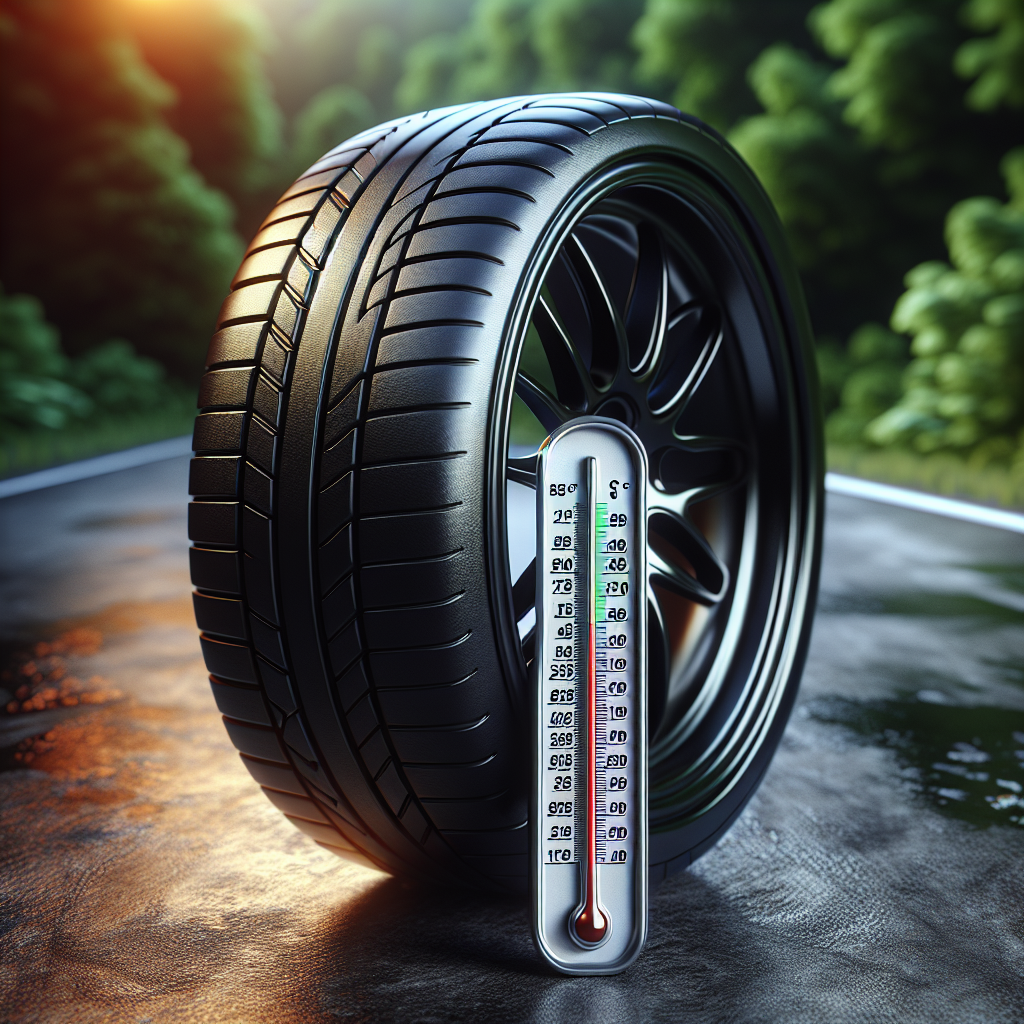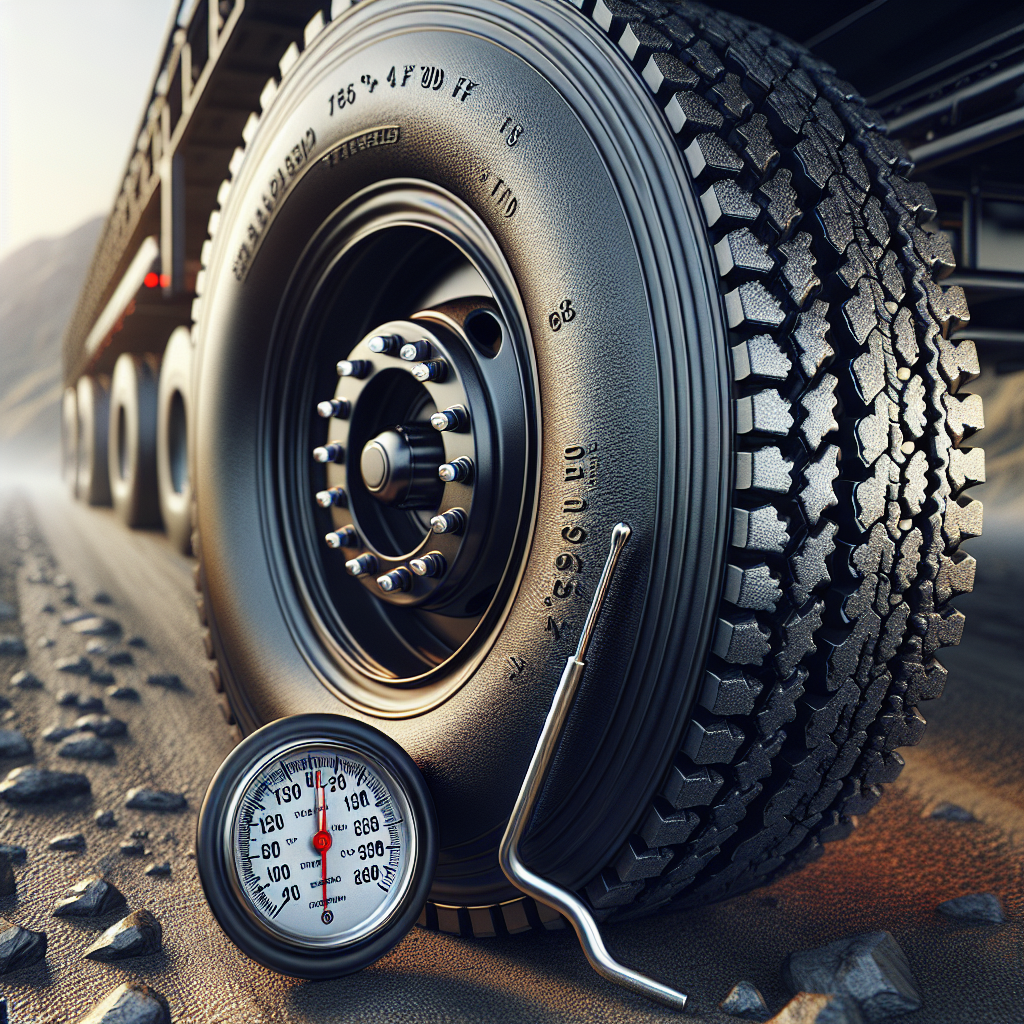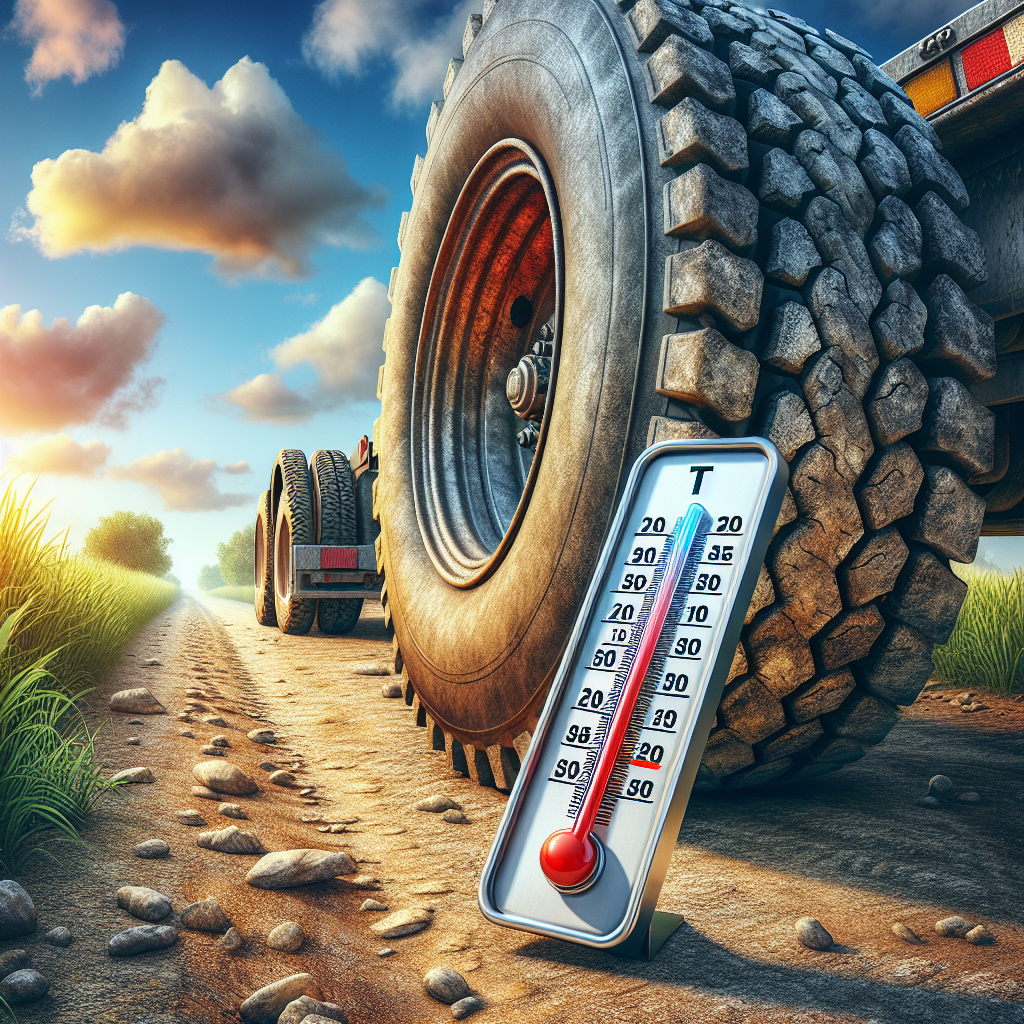Maintaining the maximum tire temperature is crucial for ensuring the safety and performance of your trailer. When tires operate beyond their optimal temperature, they can suffer from excessive wear, reduced traction, and increased risk of blowouts, which can lead to catastrophic failures on the road.
The maximum tire temperature varies depending on several factors, including the tire type, load capacity, and road conditions. Typically, tire temperatures should not exceed 185°F (85°C). Operating at higher temperatures can cause the rubber to degrade, resulting in compromised structural integrity. This degradation can manifest as:
- Increased rolling resistance, leading to decreased fuel efficiency
- Loss of grip under wet or slippery conditions
- Premature tire failure, which can be hazardous
To avoid these issues, it is essential to monitor tire temperatures regularly. Having a system in place that provides real-time data on tire temperatures allows for proactive maintenance and timely interventions. For instance, if a tire approaches its maximum temperature threshold, drivers can be alerted to reduce speed or take corrective actions to cool the tire down.
Tow with peace of mind, knowing that trailerwatchdog is standing guard. Our monitoring system transforms any trailer into a smart trailer, ensuring that you are always informed about your tires' health and efficiency.
Factors Affecting Maximum Tire Temperature
Several factors can significantly impact the maximum tire temperature experienced by your trailer's tires. Understanding these variables is essential for effective tire management and ensuring optimal performance.
Here are the key factors that contribute to tire temperature fluctuations:
- Load Weight: Heavier loads increase the friction between the tire and the road, leading to higher temperatures. Ensuring that your trailer is not overloaded is crucial for maintaining tire health.
- Driving Speed: Higher speeds generate more heat due to increased friction. Maintaining a moderate speed can help keep tire temperatures within safe limits.
- Road Conditions: Rough or uneven surfaces can cause additional stress on tires, leading to increased heat buildup. Smooth, well-maintained roads allow for better heat dissipation.
- Ambient Temperature: Hot weather can elevate tire temperatures, while cold conditions can cause them to cool down. Monitoring temperature is vital, especially during extreme weather conditions.
- Tire Pressure: Under-inflated tires create more friction, contributing to higher temperatures. Regularly checking and maintaining the correct tire pressure is essential for optimal performance.
By being aware of these factors, trailer owners can take proactive steps to manage tire temperatures effectively, ensuring safer travel and extended tire lifespan.
Optimal Tire Temperature Ranges for Trailers

Understanding the optimal tire temperature ranges for trailers is vital for ensuring safety and performance on the road. Properly maintained tire temperatures contribute to enhanced traction, improved fuel efficiency, and longevity of tire life.
The ideal temperature range for trailer tires typically lies between 90°F to 120°F (32°C to 49°C). Within this range, tires operate efficiently, providing the necessary grip and stability. However, exceeding these temperatures can have detrimental effects:
- Below 90°F (32°C): Tires operating at lower temperatures may not achieve optimal performance. Insufficient heat can lead to reduced traction, especially in wet conditions.
- Above 120°F (49°C): When tire temperatures rise beyond this threshold, the risk of tire blowouts and accelerated wear increases significantly. High temperatures can also compromise the integrity of the tire, potentially leading to catastrophic failure.
To maintain tires within this optimal range, regular monitoring is crucial. Utilizing a trailer monitoring system can help track tire temperatures in real-time, allowing for timely adjustments and preventive measures.
By keeping tire temperatures in check, trailer owners can enhance safety and performance, ensuring a smooth journey.
Consequences of Exceeding Tire Temperature Limits

Exceeding tire temperature limits can lead to various serious consequences that not only endanger the trailer but also compromise the safety of the entire vehicle and its occupants. Understanding these risks is essential for any trailer owner.
When tire temperatures rise above the recommended threshold of 120°F (49°C), the following issues can arise:
- Tire Blowouts: High temperatures can cause the air inside the tire to expand, increasing the risk of a blowout. This sudden loss of tire pressure can lead to a loss of control, resulting in dangerous situations.
- Accelerated Wear: Excessive heat accelerates tread wear, leading to reduced tire life. Tires that frequently operate at high temperatures are more likely to develop cracks and other forms of damage.
- Decreased Performance: Tires that are too hot can lose grip, especially during cornering or sudden stops. This can result in longer stopping distances and reduced handling capabilities.
- Increased Fuel Consumption: Overheated tires create more rolling resistance, which can lead to increased fuel consumption. This not only affects the economy but also adds to the overall operating costs of the trailer.
By recognizing these potential consequences, trailer owners can take proactive measures to monitor and manage tire temperatures effectively, ensuring safer journeys and better vehicle performance.
Monitoring Tire Temperature with Technology

In the modern era, technology plays a pivotal role in enhancing the safety and efficiency of trailer operations. Monitoring tire temperature is one of the critical aspects where advanced technology can make a significant difference.
With the rise of smart trailer systems, such as those offered by TrailerWatchdog, trailer owners can now access real-time data regarding tire temperatures. This technological advancement provides several benefits:
- Real-Time Alerts: Advanced monitoring systems can send immediate alerts to the driver if tire temperatures exceed preset limits. This proactive feature allows for timely interventions, reducing the risk of tire failure.
- Data Analytics: Many tire monitoring systems gather historical data, enabling owners to analyze trends in tire performance over time. This information can be invaluable for making informed decisions about tire maintenance and replacement schedules.
- Integration with Other Systems: Modern monitoring solutions can integrate with other vehicle systems, providing a holistic view of trailer health. This integration helps in diagnosing issues before they escalate into major problems.
- Enhanced Safety: By continuously monitoring tire temperature, trailer operators can ensure that their vehicles maintain optimal performance levels, leading to safer journeys for everyone on the road.
Embracing technology in tire temperature monitoring not only enhances safety but also contributes to overall efficiency and cost savings in trailer operations.
Best Practices for Maintaining Tire Temperature

Maintaining optimal tire temperature is crucial for ensuring the longevity and efficiency of your trailer's tires. Implementing best practices can significantly enhance tire health and prevent costly breakdowns. Here are some effective strategies to keep your tires in top condition:
- Regular Inspections: Conduct routine checks of your tire pressure and surface condition. Proper inflation is vital, as under-inflated tires can overheat and lead to catastrophic failures.
- Monitor Temperature: Utilize advanced monitoring systems, like those from TrailerWatchdog, to keep track of tire temperatures in real-time. This allows for immediate action if temperatures rise above safe levels.
- Adjust for Load: Ensure that your trailer is not overloaded. Each tire has a maximum load rating, and exceeding this can cause excessive heat buildup.
- Maintain Proper Alignment: Regularly check and maintain wheel alignment. Misalignment can lead to uneven tire wear and increased friction, resulting in higher temperatures.
- Choose the Right Tires: Invest in high-quality tires specifically designed for your trailer's needs. Quality tires are better equipped to handle temperature variations and ensure a smoother ride.
By following these best practices, you can maintain optimal tire temperatures and enhance the performance and safety of your trailer. Tow with peace of mind, knowing that trailerwatchdog is standing guard.








